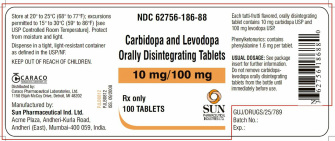Pharmacology definition - Levodopa

Levodopa
Levodopa is a type of drugs which acts as a first line of treatment for Parkinsonism. Levodopa is useful in replacing dopamine which is loss due to the loss of dopaminergic neurons in the basal ganglia.
Levodopa will be converted by DOPA decarboxylase enzyme into dopamine in the brain. Levodopa is a type of drug which able to cross the blood brain barrier which later increase the level of dopamine in the central nervous system.
Levodopa is also used together with carbidopa. Carbidopa will reduce the side effects of increase in the dopamine level in the periphery ( which may lead to cardiac arrhythmias) due to the ability of carbidopa to inhibit the action DOPA decarboxylase. Carbidopa is unable to cross the blood brain barrier.
The common side effects of levodopa include, hallucinations, cardiac arrhythmias,nausea, depression, sporadic movement and dyskinesia.
Levodopa is a type of drugs which acts as a first line of treatment for Parkinsonism. Levodopa is useful in replacing dopamine which is loss due to the loss of dopaminergic neurons in the basal ganglia.
Levodopa will be converted by DOPA decarboxylase enzyme into dopamine in the brain. Levodopa is a type of drug which able to cross the blood brain barrier which later increase the level of dopamine in the central nervous system.
Levodopa is also used together with carbidopa. Carbidopa will reduce the side effects of increase in the dopamine level in the periphery ( which may lead to cardiac arrhythmias) due to the ability of carbidopa to inhibit the action DOPA decarboxylase. Carbidopa is unable to cross the blood brain barrier.
The common side effects of levodopa include, hallucinations, cardiac arrhythmias,nausea, depression, sporadic movement and dyskinesia.
